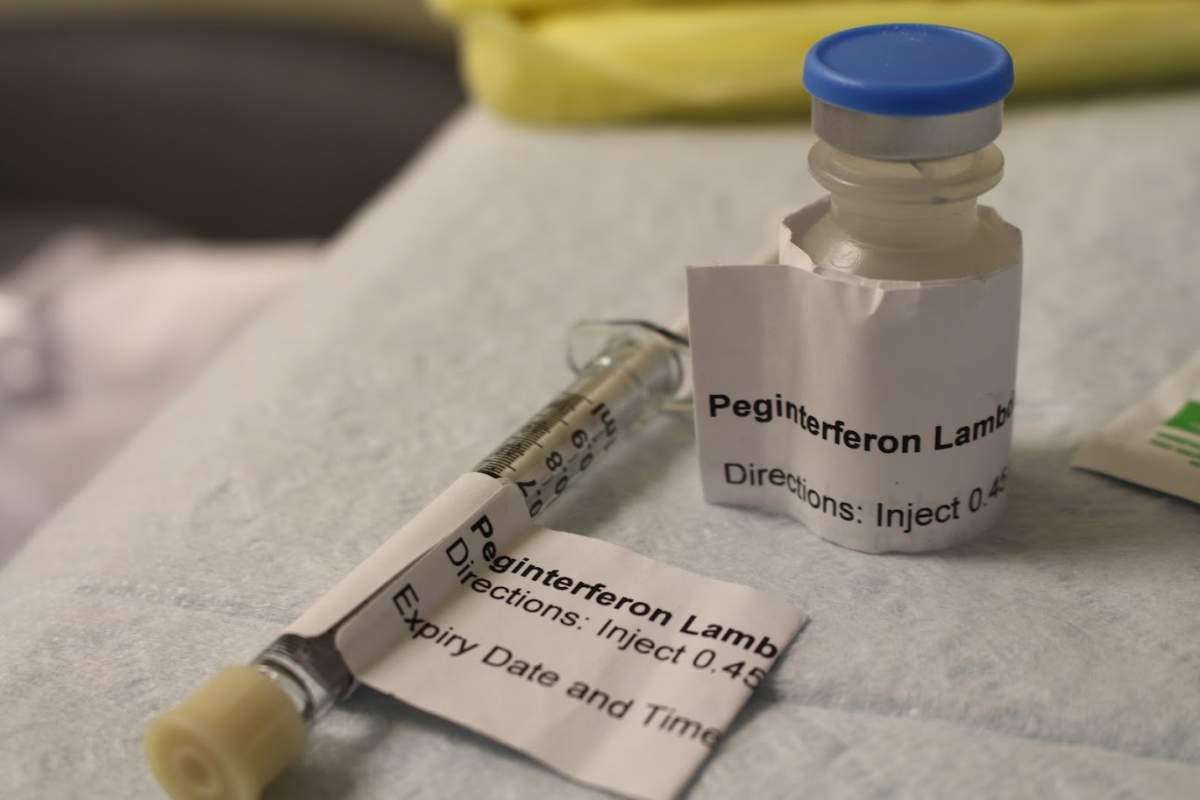A single dose of a new antiviral drug has been found to lower the risk of hospitalization or a visit to the emergency department for high-risk patients by half, according to a new study in the New England Journal of Medicine (NEJM).

The benefits of the antiviral drug called ‘peginterferon lambda’ were seen across different COVID-19 variants of concern, “including the highly transmissible Omicron variant,” the study published Wednesday found.
The study noted that the trial was one of the first to test the treatment in a largely vaccinated population (84 per cent). However, it had the same effect on those who were unvaccinated.
“This could be an important addition to our arsenal to fight COVID-19, especially for high-risk patients who may not be able to use currently available treatments because of side-effects or drug interactions with medications they take,” Dr. Jordan Feld, one of the lead authors of the study and the interim director of the Toronto Centre for Liver Disease, said in a statement.
The new therapy was conducted in Toronto and used in more than 1,900 outpatients at high risk of developing complications from COVID-19, the statement from NEJM said.

Get weekly health news
All participants were 50 years of age or older, or had a health condition putting them at a higher risk for severe COVID-19, like diabetes, hypertension or obesity or being a transplant recipient or cancer patient.
“An important feature of this treatment is that it is not affected by changes or mutations in the virus, because it works by stimulating the body’s own response to viral infection,” said Feld.
For this trial, patients who got a single-dose injection of peginterferon lambda “within seven days of their first COVID-19 symptom had a 50 per cent lower risk of needing to be admitted to hospital when compared to people who received a placebo,” the study showed.
The benefits of the treatment were also even more noticeable in people who received the drug within three days of symptom onset.
Researchers created two groups of people for the clinical trial, one receiving the actual treatment while the others received a placebo.
All of the study’s participants reported few or no side effects from the new drug. There were also “no significant differences” in side effects seen between the two groups, according to the research team’s statement.
This study is built on a previous Phase 2 trial of the drug that was done last year in Toronto at the University Health Network Foundation by Feld, which showed that peginterferon lambda quickly cleared up the virus in the body and the patients recovered faster as a result.
An article published by the University of Toronto following the Phase 2 trial in 2021 explained that peginterferon lambda stimulates a protein in the body called Interferon-lambda, which has the ability to kill invading viruses.
This could be especially beneficial since the COVID-19 virus avoids being controlled by the body’s immune system by preventing the body from producing the virus-killing protein, it said.
According to the University of Toronto’s research, “Interferon-lambda is very active in the lung, the liver, and the intestine – where the virus behind COVID-19 is able to replicate – but it is not active in other places leading to a lot fewer side effects than other interferons” that can cause fever, chills, and fatigue.
The current “much larger trial shows us that the antiviral benefits we previously observed translate to clinical benefit,” said Feld.
“The results conclusively show that this is an effective therapy to treat COVID-19 to reduce the risk of complications.”







Comments
Want to discuss? Please read our Commenting Policy first.